Your Comprehensive Guide to Probiotic Supplements for Pets’ Health
Understanding the Role of Probiotic Supplements in Pet Wellness

Probiotic supplements are specialized formulations that comprise live microorganisms, predominantly beneficial bacteria, aimed at enhancing the gut health of your cherished pets. These supplements are crucial in maintaining a balanced microbiome, which is vital for optimal digestion, efficient nutrient absorption, and overall health. The most commonly found probiotic strains in these formulations include:
- Lactobacillus
- Bifidobacterium
- Enterococcus
- Streptococcus
- Bacillus
- Saccharomyces boulardii
- Escherichia coli
Each strain offers unique benefits in regulating gut flora, assisting digestion, and boosting immunity. Given that pets possess distinct digestive systems, these supplements can be customized to address various health concerns, making them indispensable for pet owners who embrace a holistic approach to their pets’ health and wellness.
The Critical Importance of Gut Health for Your Pets
The importance of maintaining gut health in pets is paramount and cannot be overstated. A healthy gut has a profound effect on a pet’s overall well-being, influencing aspects ranging from digestion to the efficiency of the immune system, and even affecting behavioral traits. The gut microbiome is instrumental in fermenting dietary fibers, synthesizing vital vitamins, and preventing the colonization of harmful bacteria. An imbalance in gut flora can lead to a plethora of health issues, including gastrointestinal disturbances, allergies, and systemic inflammation.
For pet owners, understanding the crucial role that gut health plays in their pets’ lives empowers them to make informed choices regarding nutrition and supplementation. By prioritizing gut health, pet owners can significantly enhance their pets’ vitality and longevity, leading to a happier and healthier life for their beloved companions.
Guidelines for Selecting the Ideal Probiotic Supplement for Your Pet
Selecting the most suitable probiotic supplement for your beloved pet necessitates a thoughtful and well-informed approach. Consider critical factors such as your pet’s age, pre-existing health conditions, and the specific probiotic strains that would best address their unique health needs. For instance, young, growing pets may require different strains compared to older pets who might be dealing with specific health challenges like inflammatory bowel disease or allergies.
It’s essential to consult with a veterinarian during this process, as they can provide tailored recommendations for a supplement that fits your pet’s individual health requirements. Furthermore, researching various brands and their formulations can offer valuable insights into which products have demonstrated positive results for other pet owners. Always choose scientifically supported products that maintain transparency regarding ingredient sourcing to guarantee quality and effectiveness.
Exploring the Extensive Health Benefits of Probiotic Supplements for Pets

The advantages of integrating probiotic supplements into your pet’s diet are extensive and multifaceted. Primarily, these supplements significantly enhance digestion by aiding in the breakdown of food and improving nutrient absorption. This improvement can result in a reduction of common digestive issues such as diarrhea and constipation, which can be distressing for both pets and their owners.
In addition to supporting digestion, probiotics can substantially boost the immune system. A balanced gut microbiome is essential in strengthening a pet’s defenses against infections. Furthermore, probiotics contribute to general health and vitality, resulting in a shinier coat, increased energy levels, and an overall more robust demeanor. Regular inclusion of probiotics in your pet’s diet fosters immediate health benefits while promoting long-term well-being and resilience.
Practical Methods for Incorporating Probiotic Supplements into Your Pet’s Diet
Introducing probiotic supplements into your pet’s diet can be an uncomplicated and rewarding experience. Probiotics can be administered in various ways, such as mixing them into food, offering them as tasty treats, or providing them directly. For pets that are particularly selective eaters, presenting probiotics in the form of flavored chews or powders mixed into their meals can facilitate consistent intake.
Establishing a daily routine is crucial for maximizing the benefits of probiotics. Regular administration aids in maintaining a stable gut flora balance. Additionally, closely observing your pet’s response to the supplements is vital; look for signs of improved digestion, increased energy levels, and overall well-being to assess their effectiveness. Keeping a detailed log of any observed changes can enhance discussions with your veterinarian regarding your pet’s health.
Expert Insights on the Significance of Probiotic Supplements for Pet Gut Health
Veterinary Professionals’ Perspectives on Probiotics’ Effectiveness

Veterinary experts widely recognize the significant role of probiotics in enhancing gut health for pets, although their effectiveness can vary based on the specific strain and the individual needs of the pet. For instance, certain strains like Lactobacillus acidophilus and Bifidobacterium bifidum have shown promising results in alleviating gastrointestinal symptoms.
Numerous veterinarians have observed substantial improvements in pets suffering from chronic gastrointestinal issues after the incorporation of probiotics into their treatment plans. For example, a case study involving a dog with intermittent diarrhea revealed remarkable recovery after introducing a targeted probiotic supplement. Such real-world instances underscore the potential of probiotics in restoring gut health and enhancing overall vitality in pets.
Practical Approaches for Seamlessly Integrating Probiotics into a Pet’s Diet
Incorporating probiotics into a pet’s diet can be accomplished through various effective methods. A common and successful strategy is to mix the powdered form directly with food, ensuring that pets receive their daily dosage without hassle. Many pet owners find success in creating a routine where the probiotic is administered at the same time each day, reinforcing the habit for their pets.
For pets that are reluctant to consume their food with added supplements, combining the probiotic with a small amount of wet food or a favorite treat can often encourage acceptance. It is crucial to consistently provide the probiotic to fully observe its positive effects on gut health.
Recognizing Signs of Improved Gut Health in Pets
Monitoring the signs of improved gut health in pets is essential for owners aiming to assess the effectiveness of probiotic supplementation. Positive indicators include enhanced digestion, evidenced by firmer stools, reduced gas, and a noticeable decrease in vomiting or regurgitation.
Moreover, improvements may manifest in various aspects beyond just digestive health. Pet owners may notice increased energy levels, a shinier coat, and an overall uplift in their pet’s demeanor. Regular check-ins on your pet’s behavior and physical condition can aid in evaluating the impact of probiotics, reinforcing the critical importance of maintaining a healthy gut microbiome for your furry friends.
How to Identify the Right Probiotic for Your Pet’s Needs
Selecting the ideal probiotic for your pet is a nuanced decision that should consider several factors. Age is a key consideration, as younger animals might require different strains compared to older pets. Additionally, specific health conditions, such as allergies or inflammatory bowel disease, may necessitate targeted strains that have proven effective for those issues.
Engaging in consultation with a veterinarian is paramount in this process. A veterinarian can provide tailored recommendations based on your pet’s health history and unique requirements. Moreover, reading labels and comprehending the strains present in the probiotic is vital for making an informed and effective choice.
Potential Risks and Side Effects of Probiotics for Pets
While probiotics are generally considered safe for pets, they can occasionally lead to mild side effects, such as bloating or diarrhea, particularly during the initial adjustment phase. These symptoms typically subside as the pet’s gut adapts to the new supplement. Understanding these potential risks enables pet owners to monitor their pets closely and seek veterinary guidance if side effects persist or worsen.
It is crucial for pet owners to introduce probiotic supplementation gradually, aiming to minimize any adverse reactions. Maintaining open communication with a veterinarian can help address concerns and ensure that the chosen probiotic supplement is suitable for the pet’s health status.
Understanding the Comprehensive Benefits of Probiotics for Pet Health
Digestive Health Enhancements Offered by Probiotics
Probiotics play an essential role in promoting digestive health in pets. These beneficial microorganisms assist in breaking down food more efficiently, significantly enhancing the absorption of vital nutrients. This process is particularly critical for pets with sensitive stomachs or those that frequently experience gastrointestinal disturbances.
Furthermore, probiotics can help alleviate common digestive issues such as diarrhea and constipation. By maintaining a healthy balance of gut bacteria, probiotics create an environment where harmful bacteria are less likely to thrive, effectively reducing the occurrence of digestive upset. Regular use of probiotic supplements can lead to long-term improvements in digestive health, fostering a more resilient gut and happier pets.
Significant Immune System Boosts from Probiotics in Pets
Indeed, probiotics can substantially enhance the immune system in pets by promoting a balanced gut flora, which is crucial for overall health and vitality. The gut microbiome plays a vital role in the maturation and functioning of the immune system. A healthy balance of beneficial bacteria helps inhibit the growth of pathogenic microorganisms, effectively lowering the risk of infections and illnesses.
Additionally, studies indicate that pets with a balanced microbiome are better equipped to respond to vaccines and combat illnesses. By integrating probiotics into a pet’s diet, owners can provide essential support for their pets’ immune systems, contributing to a healthier and more vibrant life overall.
Impact of Probiotics on Pet Behavior and Mood
Emerging research suggests that gut health can significantly influence a pet’s mood and behavior. Probiotics may assist in alleviating anxiety and stress, promoting a calmer disposition in pets. A healthy gut microbiome is linked to the production of neurotransmitters, such as serotonin, which plays a critical role in regulating mood and emotional behavior.
Pets exhibiting signs of anxiety or behavioral issues may greatly benefit from probiotic supplementation. By supporting gut health, pet owners might observe improvements in their pets’ overall temperament, leading to a more harmonious household and a happier relationship with their furry companions.
Exploring Diverse Types of Probiotic Supplements Available for Pets
Different Forms of Probiotic Supplements for Pets
Probiotic supplements are available in various forms, each offering unique advantages based on the pet’s preferences and requirements. The common forms include:
- Powders: Easily mixable with food, ideal for pets who are amenable to flavor enhancements and dietary changes.
- Capsules: Convenient for precise dosages but may be more challenging for pets to consume directly.
- Chews: Palatable and easy for pets to eat, often enjoyed as treats, making administration more enjoyable.
- Liquids: Can be administered directly or blended into food but may require careful measuring for proper dosage.
Each form has its pros and cons; for example, while powders are versatile and easy to incorporate, some pets may resist them. Conversely, chews can be appealing but may contain added sugars or other unwanted ingredients. Understanding your pet’s preferences can guide you in selecting the most effective form of probiotics tailored to their needs.
Most Effective Probiotic Strains for Pet Health
Certain probiotic strains are particularly effective in supporting pet gut health. Lactobacillus and Bifidobacterium are among the most commonly utilized strains in pet probiotics, celebrated for their ability to promote digestive health and enhance immune function.
For pets with specific health concerns, additional strains such as Saccharomyces boulardii may be beneficial in addressing issues like diarrhea or antibiotic-associated gut disturbances. Familiarity with these specific strains empowers pet owners to make informed decisions when selecting a probiotic supplement tailored to their pet’s unique health needs.
Proper Storage Techniques for Probiotic Supplements to Ensure Efficacy
To maintain the effectiveness of probiotics, proper storage is essential. Most supplements should be kept in a cool, dry place, away from direct sunlight. Here are some practical storage tips:
- Store in the original container to preserve potency and prevent contamination.
- Keep in a cool area, ideally below 75°F (24°C), to maintain effectiveness.
- Avoid exposure to moisture; consider using desiccants if applicable to absorb humidity.
- Seal tightly after each use to prevent contamination and degradation of the product.
Following these guidelines ensures that the probiotics retain their effectiveness and potency, enabling pets to benefit fully from their supplementation and enhancing overall health.
Research Insights on Probiotic Supplements for Pet Gut Health
Recent Research Findings on Probiotics and Gut Health
Extensive research has demonstrated that probiotics can significantly enhance gut health in pets. Studies indicate that probiotics effectively balance the microbiome, leading to a reduction in digestive disturbances. For instance, a study highlighted in veterinary journals revealed that dogs receiving probiotics experienced a marked decrease in diarrhea episodes compared to those who did not receive any probiotic support.
The growing body of evidence supporting the use of probiotics in pets is compelling, with many veterinarians endorsing their use in managing gastrointestinal issues. This research underscores the importance of probiotics not only for immediate digestive relief but also as a preventative measure for maintaining a healthy gut microbiome.
Managing Specific Health Conditions in Pets with Probiotics
Probiotics have shown great potential in managing specific health conditions in pets. For example, pets suffering from irritable bowel syndrome may find relief from their symptoms when probiotics are included in their treatment plans. Similarly, dogs with food allergies can benefit from probiotics, which help stabilize gut flora and mitigate inflammatory responses associated with allergies.
Numerous real-world examples illustrate the effectiveness of probiotics, with many pet owners reporting significant improvements in their pets’ conditions after the introduction of targeted probiotic strains. Understanding these benefits can empower pet owners to utilize probiotics effectively in managing their pets’ health concerns and enhancing their quality of life.
Potential Side Effects Associated with Probiotic Use
While probiotics are generally safe for most pets, mild side effects may occasionally occur, particularly during the initial supplementation phase. Some pets might experience temporary gas, bloating, or diarrhea as their digestive systems adapt to the introduction of new bacteria. It is crucial for pet owners to closely monitor these effects; if they persist or worsen, consulting a veterinarian is advisable.
Gradually introducing probiotics into a pet’s diet can help minimize these side effects and facilitate a smoother transition. Being aware of potential reactions allows pet owners to take proactive steps to optimize their pets’ health and well-being.
Best Practices for Administering Probiotic Supplements to Pets
Effective Methods for Administering Probiotics to Pets
Administering probiotics can be achieved in several effective ways. Mixing powdered probiotics with food is a common and straightforward practice that ensures pets receive their daily dose seamlessly. Chewable forms are also popular, as many pets find them appealing and enjoy them as tasty treats.
For pets that are resistant to taking supplements, direct administration may be necessary. This can be done by hiding the supplement in a small amount of soft food or utilizing a pill pocket for easy consumption. Experimenting with various methods can help pet owners discover the most effective approach for their unique companions.
Recommended Frequency for Probiotic Administration
The frequency of probiotic administration largely depends on the specific supplement and the individual health needs of the pet. Daily use is often recommended, especially for maintaining gut health and addressing ongoing digestive issues. However, some pets may benefit from alternative schedules, such as intermittent dosing during periods of stress or following antibiotic treatment.
Consulting with a veterinarian is essential for establishing the right probiotic regimen for your pet. Regular evaluations can help determine if adjustments to the frequency or dosage of probiotics are necessary to best support your pet’s health.
Strategies for Encouraging Pet Acceptance of Probiotics
If a pet refuses to take probiotics, pet owners can adopt various strategies to encourage acceptance and compliance. Trying different forms, such as switching from powder to chewables or vice versa, can often yield positive results. Additionally, incorporating the probiotic into highly palatable treats or soft food can entice even the most finicky eaters.
If resistance continues, seeking guidance from a veterinarian for alternative solutions or formulations may be advisable. Maintaining a calm demeanor during administration attempts can also help reduce stress for both the pet and the owner, making the process smoother and more successful.
Monitoring and Adjusting Probiotic Use for Optimal Health Benefits
How to Effectively Monitor the Impact of Probiotics
Monitoring the effects of probiotics involves diligent observation of your pet’s behavior, digestion, and overall health. Keeping a detailed journal to track any changes can be invaluable in this process. Pet owners should note improvements in digestion, such as firmer stools or decreased gas, as well as changes in energy levels and general well-being.
Regular veterinary check-ups are also essential during this monitoring phase. Veterinarians can assist in interpreting any observed changes and provide guidance on whether adjustments to the probiotic regimen are necessary for optimal health outcomes.
When to Adjust Probiotic Dosage for Your Pet
Adjusting the probiotic dosage may be necessary if there are noticeable changes in a pet’s health or if side effects occur. If a pet shows signs of distress or digestive upset, it may indicate that the dosage is too high or that a different strain is needed for their specific requirements.
Consulting with a veterinarian is crucial when considering dosage adjustments. They can provide tailored recommendations based on the pet’s current health status and history with probiotic use, ensuring the best possible outcomes for your furry friend.
Long-Term Benefits of Probiotic Use for Pets
The long-term advantages of probiotic use for pets are substantial and multifaceted. Regular supplementation can lead to sustained improvements in gut health, resulting in enhanced immune function, better digestion, and overall well-being. Chronic digestive issues may become less frequent, while pets may showcase improved energy levels and vitality over time.
Recognizing these long-term benefits can encourage pet owners to maintain a consistent probiotic regimen for their pets, ultimately fostering a healthier and happier life for their cherished companions.
Frequently Asked Questions About Probiotic Supplements for Pets
What Are Probiotic Supplements for Pets?
Probiotic supplements for pets are products containing beneficial live bacteria that support gut health and improve digestion in animals. They help maintain a balanced microbiome, which is essential for overall wellness.
How Can I Determine if My Pet Needs Probiotics?
Signs that your pet may need probiotics include digestive issues, such as diarrhea or constipation, a dull coat, or recurring infections. Consulting with a veterinarian can provide personalized guidance on whether probiotics would benefit your pet.
Are All Probiotics Safe for Pets?
While most probiotics are safe for pets, it is crucial to choose species-specific formulations designed for animals. Always consult with a veterinarian before starting any new supplement to ensure safety and efficacy for your pet.
How Long Does It Typically Take for Probiotics to Work in Pets?
The time it takes for probiotics to show effects can vary but generally ranges from a few days to several weeks. Continuous observation is essential to assess their impact on your pet’s health and well-being.
Can I Administer Human Probiotics to My Pet?
It is not recommended to give pets human probiotics, as they may not be formulated for animals and could contain strains harmful to pets. Always opt for products specifically designed for the unique needs of pets.
What Is the Optimal Time to Administer Probiotics to My Pet?
Probiotics can be given at any time of the day, but consistency is key. Many pet owners choose to administer them with meals to enhance absorption and adherence to the regimen.
Can Probiotics Help Alleviate My Pet’s Allergies?
Probiotics may assist in alleviating allergy symptoms in pets by promoting a balanced gut microbiome, which can help reduce inflammation and support overall immune function.
How Should I Store Probiotic Supplements?
Probiotic supplements should be stored in a cool, dry place, away from sunlight, and tightly sealed to maintain potency. Always check packaging for specific storage instructions to ensure optimal efficacy.
What Should I Do If My Pet Exhibits Side Effects from Probiotics?
If your pet experiences side effects from probiotics, such as bloating or diarrhea, consult your veterinarian. They may recommend adjusting the dosage or trying a different strain to ensure your pet’s comfort and health.
How Can I Assess Whether the Probiotics Are Working for My Pet?
Indicators of probiotic effectiveness include improved digestion, increased energy, and a healthier coat. Regular monitoring and communication with your veterinarian can help assess their effectiveness and overall impact on your pet’s health.
Connect with us on Facebook!
The Article Probiotic Supplements for Pet Gut Health: Essential Guide First Published On https://elgatoencasa.com
The Article Probiotic Supplements: Essential Guide for Pet Gut Health Was Found On https://limitsofstrategy.com
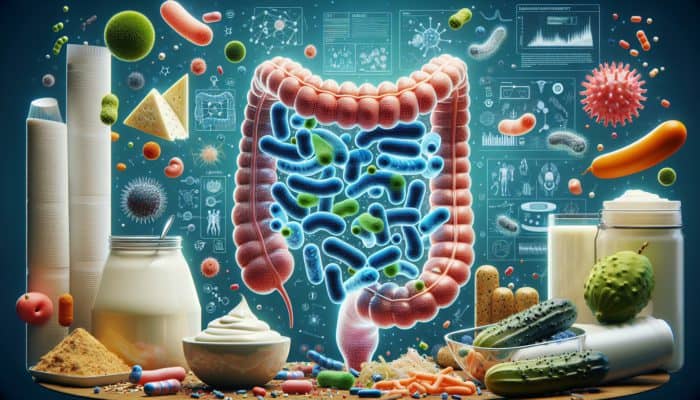



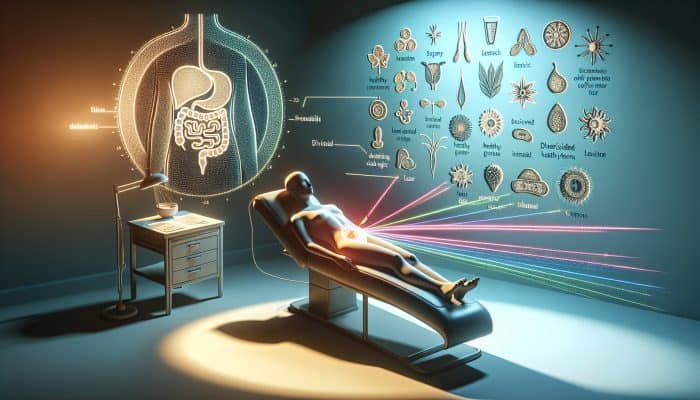
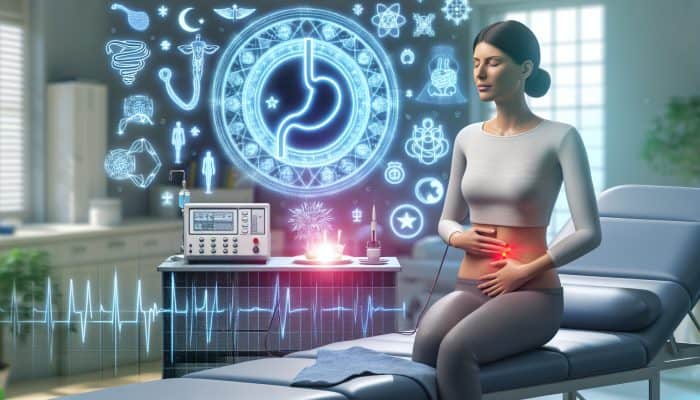
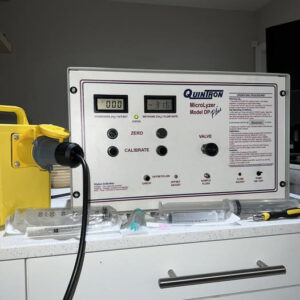
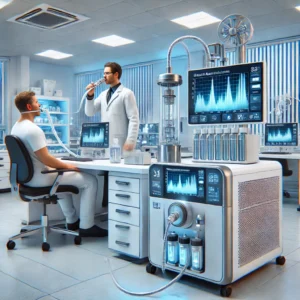 Unveiling the Cutting-Edge Breath Gas Chromatography System for Precise Diagnoses
Unveiling the Cutting-Edge Breath Gas Chromatography System for Precise Diagnoses Receive Personalized Care Customized to Your Unique Gut Health Requirements
Receive Personalized Care Customized to Your Unique Gut Health Requirements

